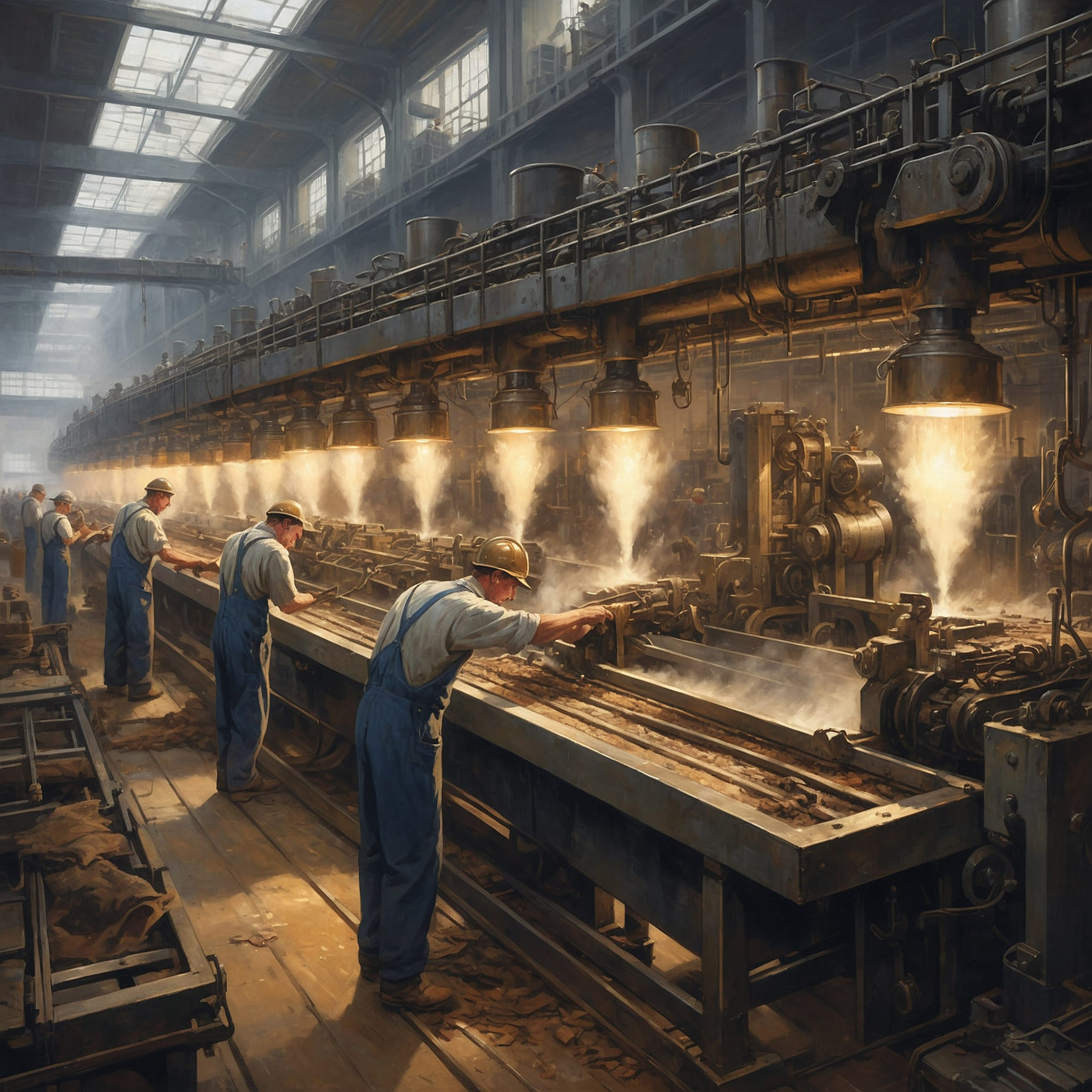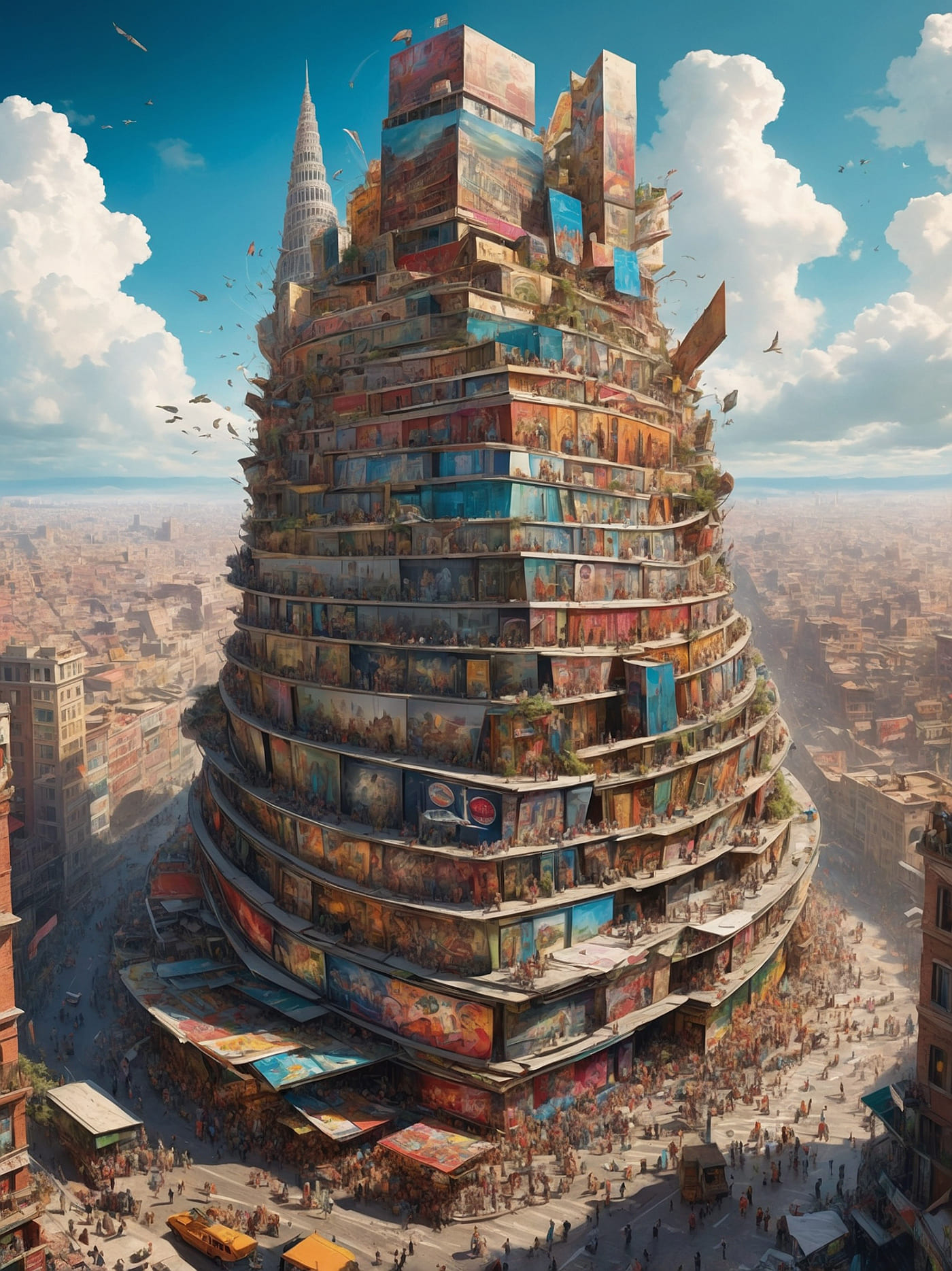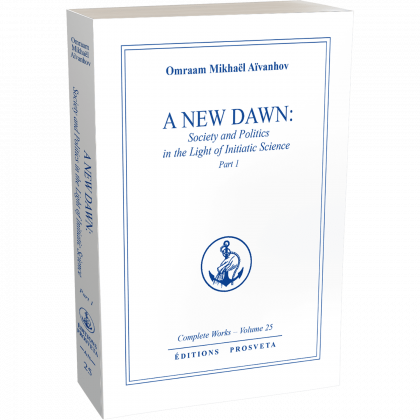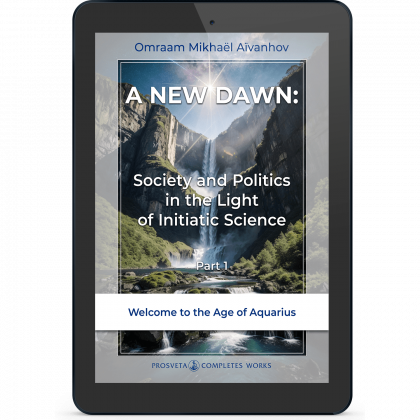The real economy
The real economy starts in attention
'Human beings have invented all kinds of conveniences to give themselves the favorable conditions they need in order to cultivate their faculties and talents, but there is one point that they have consistently overlooked, and that is the question of attention.
Why do parents never think of fostering vigilance in their children? They should start to do so even when they are very young, for this lack of self-observation and analysis, this inattention to what goes on in one’s inner sanctum is at the root of a great deal of suffering.
This is why I tell you that the beginning of true economics is somewhere where you have never thought to look for it: in attention. It is staggering to see the number of means and products that exist to mend or renovate things that have been damaged, broken or stained – and not only inanimate objects, but human beings as well. It’s amazing: one half of the world population works at repairing the damage done by the other half. Well, this is something that economists should give more thought to, the fact that people rely too much on external means and tell themselves, ‘Why bother to take care when there are so many technicians and workers capable of mending whatever I break, including myself?’ The more conveniences people have the less they develop the faculty of attention, and this is what destroys an economy: too much has to be spent on repairs.
Of course, I know very well that this is not the economists’ point of view. Not only have they never envisaged the problem in this way, but their philosophy is diametrically opposed. They say that we must produce more and more goods and, in order to keep stocks rolling, people must buy as much as possible. They urge people to consume, therefore, and not only to consume but to waste. The more goods they buy the better it will be. If they are careless and wreck their car or break a major appliance in their home, so much the better: they will have to buy new ones. If they live irresponsibly and ruin their health, that, too, is all to the good: they will be contributing to a thriving pharmaceutical industry. Naturally, in this way, the commercial and financial affairs of certain individuals and countries will prosper but, for mankind as a whole, for its physical and psychological health and well-being, this conception of economics is ruinous, catastrophic.
True economics, therefore, will not be found where most people look for it. Real economy consists, in fact, in not wasting the forces, qualities and energies that heaven has given us. True economics begins with wisdom, moderation and attention. There are swarms of economists in the world today; impossible to get away from them! But mankind will never find happiness by following their philosophy because they see nothing but the material aspect of life and its problems.
It is at the top, first of all, in the intelligence, that the economy must begin: in thoughts, words, looks, in the way of acting, in the way of living ... This is what I want to emphasize, therefore, the necessity for this inner attention, this constant awareness that allows you to see what is going on within yourself at every moment of the day or night and to recognize the currents and influences that pass through you.'
'Human beings have invented all kinds of conveniences to give themselves the favorable conditions they need in order to cultivate their faculties and talents, but there is one point that they have consistently overlooked, and that is the question of attention.
Why do parents never think of fostering vigilance in their children? They should start to do so even when they are very young, for this lack of self-observation and analysis, this inattention to what goes on in one’s inner sanctum is at the root of a great deal of suffering.
This is why I tell you that the beginning of true economics is somewhere where you have never thought to look for it: in attention.
It is staggering to see the number of means and products that exist to mend or renovate things that have been damaged, broken or stained – and not only inanimate objects, but human beings as well. It’s amazing: one half of the world population works at repairing the damage done by the other half. Well, this is something that economists should give more thought to, the fact that people rely too much on external means and tell themselves, ‘Why bother to take care when there are so many technicians and workers capable of mending whatever I break, including myself?’ The more conveniences people have the less they develop the faculty of attention, and this is what destroys an economy: too much has to be spent on repairs.
Of course, I know very well that this is not the economists’ point of view. Not only have they never envisaged the problem in this way, but their philosophy is diametrically opposed. They say that we must produce more and more goods and, in order to keep stocks rolling, people must buy as much as possible. They urge people to consume, therefore, and not only to consume but to waste. The more goods they buy the better it will be. If they are careless and wreck their car or break a major appliance in their home, so much the better: they will have to buy new ones. If they live irresponsibly and ruin their health, that, too, is all to the good: they will be contributing to a thriving pharmaceutical industry.
Naturally, in this way, the commercial and financial affairs of certain individuals and countries will prosper but, for mankind as a whole, for its physical and psychological health and well-being, this conception of economics is ruinous, catastrophic.
True economics, therefore, will not be found where most people look for it. Real economy consists, in fact, in not wasting the forces, qualities and energies that heaven has given us. True economics begins with wisdom, moderation and attention. There are swarms of economists in the world today; impossible to get away from them! But mankind will never find happiness by following their philosophy because they see nothing but the material aspect of life and its problems.
It is at the top, first of all, in the intelligence, that the economy must begin: in thoughts, words, looks, in the way of acting, in the way of living ... This is what I want to emphasize, therefore, the necessity for this inner attention, this constant awareness that allows you to see what is going on within yourself at every moment of the day or night and to recognize the currents and influences that pass through you.'




